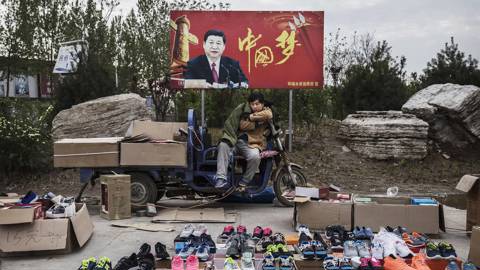Mamphela Ramphele
Says More…
PS: In a presentation early this year, you pointed out that, in apartheid South Africa, the majority was viewed as an aberration, with black people being described as “non-white” and African people being described as “non-European.” The first step to achieving “any major paradigm shift,” you explained, is thus to become “conscious of the contradictions, the absurdities that we take as normal.” At the New Summits event, you will participate in a panel discussion on the New Green Economics, which focuses on a badly needed paradigm shift in economics. What lessons does your experience as an anti-apartheid activist hold for convincing people today to recognize unsustainable or “absurd” contradictions?
Mamphela Ramphele: The most important lesson from the activism of the 1970s is that one needs to be centered inwardly, in order to be able to take a holistic perspective of the world around them. It was becoming conscious of our worth as human beings on the mother continent of Africa that made us rise up to name ourselves – to pronounce ourselves – black people and proud freedom fighters. Recognizing the absurdity of Europeans establishing themselves as the standard of what it means to be human – and that is what they did when they referred to us as “non-Europeans” – drove even the most timid black person to find their voice, to name themselves, and to recover their humanity.
Taking away the most effective weapon of oppression – the minds of the oppressed – made the oppressor lose control. So, now, like in apartheid South Africa, we must mobilize people by changing their ideas. This requires a powerful message that touches their hearts and minds, thereby setting them free from the fear of change. By giving people a taste of freedom from the absurdities that have been normalized in their minds, we will empower them to claim their freedom.
PS: At the African Peace and Security annual conference, you observed that “Conflicts around the globe are initiated and wars are waged predominantly by men. Even the most empowered women and courageous activists find it very difficult to make breakthroughs, unless there is a partnership between those who tend to wage war and those who are peacemakers.” Similar arguments could be made about environmental destruction. How prominent a role will those who “wage environmental war” – for example, the business community – have to play in efforts to stem that destruction, in order to make breakthroughs?
MR: Lasting partnerships need a shared vision to sustain them. Those “waging environmental wars” are often segments of business that deny the shared vision of a healthy biosphere, because of the attractiveness of short-term profits. The most effective way of pushing the business community out of denial – of getting them to acknowledge the interconnectedness and interdependence of all life of Earth – is to call out their shareholders, who often speak the language of our “shared vision,” as they reap profits from activities that undermine it.
Environmental, Social, and Governance (ESG) reporting has become a powerful way of calling shareholders out when they fail to back their pronouncements with action. It helps that it is effectively their peers who are doing the calling out, much like when men who believe in gender equity and respect for human rights take the lead in calling out abusive men. Putting pressure on shareholders is the best way of driving companies to become good citizens and partners in the fight to ensure the well-being of all on a healthy planet.





